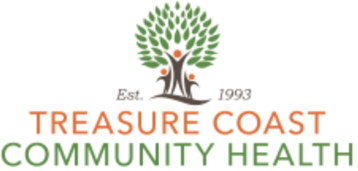HIV
HIV (human immunodeficiency virus) is a virus that attacks and weakens the body's immune system; a weakened immune system leaves individuals vulnerable to infections such as tuberculosis, pneumonia, and the common cold. Left untreated, HIV develops into AIDS (acquired immunodeficiency syndrome), which can be devastating and fatal.
HIV is an important concern in our communities. Approximately 124,577 people in Florida live with HIV, and the state of Florida has a higher rate of deaths related to HIV than the United States overall average.
HIV cannot be cured but with consistent continued treatment the virus that causes HIV can be minimized to undetectable, which will allow the individual with HIV to live a healthy life.
Source: FL Health CHARTS and AIDSVu
Symptoms
The symptoms of HIV usually appear 2 to 4 weeks after infection and are similar to other common infectious diseases, like a cold. HIV symptoms may include:
- Chills
- Fatigue
- Fever
- Mouth ulcers
- Muscle and joint aches
- Night sweats
- Rash
- Swollen lymph nodes
Other illnesses cause similar symptoms and sometimes individuals do not have any symptoms. According to the Centers for Disease Control and Prevention (CDC), 4 out of every 10 new HIV infections are transmitted by people who don’t know they have the virus, so it is very important to test for HIV. Additionally, if you have been ill and are not responding to treatment, it may be a good idea to ask your provider to test specifically for HIV.
How it Spreads
The spread of HIV is through certain bodily fluids:
- Blood
- Breastmilk
- Semen
- Anal fluids
- Vaginal fluids
The above fluids must enter the body through damaged tissue, like a cut, a mucous membrane, like the tissues found inside the rectum, vagina, penis, or mouth, or be injected directly into the blood stream, through needles or syringes or commonly used items like razors, nail clippers, tattoo equipment, or toothbrushes.
In the United States, most HIV cases are spread through sexual contact versus drug injection. HIV is also not spread through casual contact like hugging or shaking hands.
Risk Factors
Behaviors that increase the risk of contracting HIV are:
- Having an STI (sexually transmitted infection)
- Unprotected sex
- Using shared drug equipment including needles
Testing
The CDC recommends that everyone between the ages of 13 and 64 get tested for HIV at least once in their lifetime.
Individuals who engage in one or more of the behaviors below should be tested at least once a year:
- Had sex with someone with an unknown sexual history
- Had more than one sex partner since your last HIV test
- Had anal or vaginal sex with someone with HIV
- Treated for or have an STI, hepatitis, or tuberculosis (TB)
- Shared needles, syringes, and other drug equipment
There are different types of HIV tests with different options on how they are administered. At TCCH, we have an Infectious Disease Nurse to assist patients every step of the way from testing to treatment. TCCH also has a mobile outreach unit that can provide HIV rapid tests by testing blood from a prick of the finger.
Prevention
- Use condoms
- Use PrEP (pre-exposure prophylaxis) or PEP (post-exposure prophylaxis)
- PrEP is a medicine taken by individuals who do not have HIV to prevent getting it. It is to be taken before and after potential exposure to HIV and reduces the risk of getting HIV through sexual contact by about 99% and reduces the risk of getting HIV by at least 74% among individuals who inject drugs. It can be taken orally or through injections.
- PEP is an oral medicine taken by individuals who do not have HIV to prevent getting it, but it is taken only after potential exposure to HIV. The sooner PEP is started the better, but it must be started within 72 hours of exposure and continued daily for 28 days. It is also not used as a regular preventative method.
- Never share drug injection equipment
Treatment
The goals of treating HIV are to suppress the virus, restore immunity to it, reduce HIV-associated illnesses, prolong the duration and quality of life, and prevent the spread of HIV. Even though HIV can never be completely cured, those with HIV can still lead happy and healthy lives with consistent treatment.
Antiretroviral therapy (ART) is the method used to treat HIV, and the goal is to make the amount of the virus in the body so low that it cannot be detected on tests. If HIV is undetectable, it is untransmissible, and most people can get HIV under control within six months. ART can be medication taken orally or injections – TCCH will make referrals for you to follow with an infectious disease specialist who will help you determine which treatment plan is best.
Sources: CDC, HIV.gov

